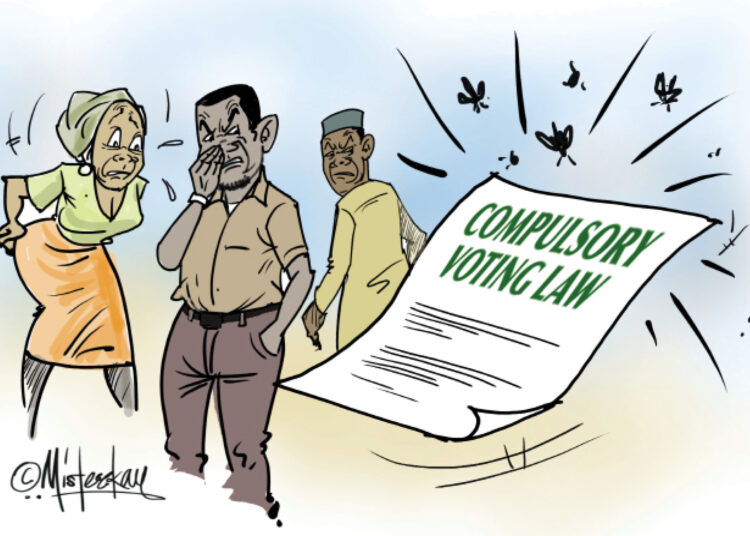It is increasingly clear that lawmakers are the only people who take the National Assembly (NASS) seriously. And the reason is simple.
The disclosure by former CBN Governor, now Emir of Kano, Sanusi Lamido Sanusi, that the then NASS consumed 25 per cent of the country’s budget irretrievably changed Nigerians’ perception of lawmakers. And things have never been the same again. Sadly, they may never be.
Money Guzzling Machine
To the average Nigerian, NASS members are money guzzlers. When the institution is mentioned, what comes to mind is budget padding, extortion of ministries, departments, and agencies under the cloak of oversight, and rubber stamping… Trust in lawmakers is at its lowest ebb.
Unfortunately, the lawmakers have never failed to prove doubting Nigerians wrong. On a daily basis, they continue to confirm to the public that there is little or no need for a full-time parliament, suggesting the nation may be better off with a part-time legislature, or citizens legislature as it is often called.
Recently, the lawmakers demonstrated their knack for prioritising irrelevance over serious issues impeding national development. The latest episode in the series of parliamentary gaffes in Nigeria – this time from the House of Representatives – is a move to legislate a bill seeking to make voting compulsory, with consequent punishment of six months’ imprisonment or a N100,000 fine for citizens who fail to vote.
The bill, jointly sponsored by Speaker Tajudeen Abbas and Daniel Ago, has passed second reading. In a failed attempt to justify it, Ago said it would end voter apathy and reduce vote-buying. And I ask—how?
Superfluous Distraction?
Is this bill another plot to distract Nigerians from the pressing national issues they’ve been lamenting? Is the NASS trying to test the waters? Would such a law solve the real causes of voter apathy, which hit rock bottom during the last election?
The central thesis of this legislation is to curb voter apathy. Granted, voter apathy exists—and it became glaring in the last election, when only about 27.6 per cent of registered voters showed up. But the real question is: Why is there voter apathy?
After years of unfulfilled promises, Nigerians have lost faith in the system. The Independent National Electoral Commission (INEC) has failed to convince the citizens of its impartiality and independence. Consequently, trust in the electoral umpire has waned irretrievably.
Many Nigerians believe their votes don’t count. So, why bother queuing under the scorching February or March Sun to vote? Added to this are rampant unfulfilled electoral promises by elected officials. That is the core of voter apathy. And it cannot be solved by a law on compulsory voting that will be difficult, if not impossible, to enforce.
Countries such as Brazil, Ecuador, Peru, Singapore, Uruguay, Belgium, Argentina, Egypt, Costa Rica, the Dominican Republic, Greece, Honduras, Thailand, and Turkey have laws on compulsory voting. Still, enforcement remains weak in most of these nations.
Misplaced Priority
Is it elections marred by vote buying, rigging, and illicit campaign financing that the NASS wants to make mandatory?
Rather than wasting energy on a mandatory voting law, NASS members should prioritise legislation to tackle the fundamental problems of poverty, insecurity, and corruption, among others, that demand urgent action.
Nigerians do not deserve a law that will compel them to vote for people who eventually plunder their collective wealth. Why should I be forced to vote if I’m not interested? This new bill is a clear violation of constitutionally guaranteed freedoms.
Instead of contemplating such a law, the NASS should investigate and address the causes of voter apathy: Why should there not be apathy when votes rarely count, when vote-buying is brazen, when thugs snatch ballot boxes, when INEC is either unwilling or ill-equipped to prosecute electoral offenders, and when the system frustrates efforts to prove electoral malpractice at the tribunal?
In a sane society, lawmakers would focus on these issues rather than chase shadows with laws that criminalise non-voting.
The bill is not only toxic, obnoxious, and, dare I say, unconstitutional, but is also oppressive, draconian, and utterly ridiculous. It contradicts the Constitution’s guarantee of free choice. Elections as a civic duty cannot, and must not, be criminalised. The law explicitly provides for the right to vote and be voted for. Why would the lower chamber seek to compel citizens to vote?
Perhaps Speaker Abbas and his co-sponsor may have answers to the plethora of questions arising from this vexatious move to criminalise non-voting. Why should any law penalise citizens who choose not to exercise their voting rights? Is it right to compel someone to vote even when in his estimation there are no eligible candidates on the ballot?
For Nigeria’s sake, lawmakers should bin this bill. The country doesn’t need a compulsory voting law. Once the system guarantees credible elections, Nigerians will come out en masse to register and vote. Until then, any such law is merely chasing shadows.





